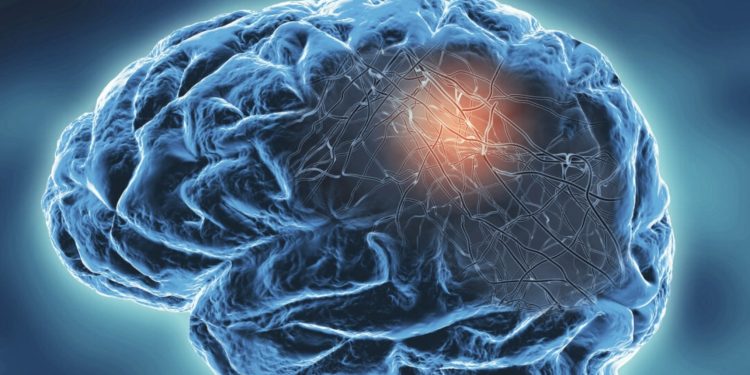Alzheimer’s disease (AD) is a neurological disorder that causes a gradual decline in cognitive ability, primarily affecting memory, thinking, and behavior. It is the leading cause of dementia, which can interfere with daily life activities. Alzheimer’s disease progresses slowly, and symptoms typically worsen over time.
However, even though—according to the U.S. Centers for Disease Control and Prevention (CDC)—over 5 million Americans suffer from this, early-onset Alzheimer’s is atypical. Early-onset Alzheimer’s affects people between 40 and 50 years old.
This progressive illness affects memory and leads to difficulty with communication and social interactions.
The challenge in the early stages is obtaining an accurate diagnosis due to many symptoms being caused by things like stress, anxiety, certain medications, thyroid problems, sleep disorders, nutritional deficiencies, etc.
A great example is stressful situations in your daily life. During these times, it’s normal to forget one or two things.
However, if you think you could have early symptoms of dementia, these seven signs of early-onset Alzheimer’s will help you recognize it.
Causes of Early-Onset Alzheimer’s Disease
The thing about Alzheimer’s is that there are still a lot of unanswered questions about how it develops. Proteins appear in the brain that are linked with Alzheimer’s development. Two specific types of are often associated with the condition: beta-amyloid and tau proteins. What these proteins do is disrupt normal cellular and molecular processes and attack the areas of the brain associated with memory.
- This affects daily activities and behavior.
Some genes can increase the risk of developing early-onset Alzheimer’s. These include the following:- APOE (Apolipoprotein E) Gene, especially the APOE E4.
- PSEN1 (Presenilin 1) and PSEN2 (Presenilin 2).
- APP (Amyloid Precursor Protein).
Risks
The risk factors for developing early-onset Alzheimer’s include the following:
- Genetics.
- Family history.
- Medical conditions like cardiovascular disease, diabetes, and head injuries.
- Environmental factors like exposure to toxins.
- Lifestyle factors, including a sedentary lifestyle, poor diet, smoking, and excessive alcohol consumption.
Can You Diagnose Early-Onset Alzheimer’s Disease?
Diagnosing early-onset Alzheimer’s involves a comprehensive evaluation by a health care professional, including a thorough medical history, physical examination, and various tests and assessments. The goal is to rule out other potential causes of cognitive impairment and to identify any underlying factors contributing to the symptoms. Here are some of the tests and assessments commonly used in diagnosing early-onset Alzheimer’s disease:
- Neurological tests.
- Cognitive exercises.
- Neuropsychological testing.
- Blood samples.
- MRI, PET, or CTs.
- Cerebrospinal fluid analysis.
- Genetic testing.
- Functional and behavioral assessments.
- Family and caregiver interviews.
7 Signs of Early-Onset Alzheimer’s
Early-onset Alzheimer’s is not easily detectable, but if you experience the following symptoms, see a qualified health care professional to rule out other underlying causes:
- Memory loss: If you find yourself forgetting important things, such as special events, familiar faces you should remember (like your mom’s), or repeating questions, these could be signs pointing to memory loss.
- You have a hard time solving problems or planning: A person with real AD symptoms will have difficulty focusing on numbers and following or developing a plan, struggling to follow directions or instructions, even simple ones, and needing frequent reminders.
- You can’t finish simple tasks correctly: You’re having trouble focusing or maintaining attention on tasks, making it challenging to complete complex or multistep activities like following a recipe you’ve followed many times before.
- You can’t find the right words: Experiencing difficulty finding the right words during conversations or having frequent “tip-of-the-tongue” moments.
- You avoid crowds and social events: People with AD find social events difficult. If you or someone you know is constantly rejecting going out because they feel uncomfortable with these social situations, it could be a sign of dementia.
- Your personality changes constantly: Changing behavior or personality could be related to bipolar disorder. However, it could also be an AD sign. Confusion, anxiety, fear, angry outbursts, or depression are common moods with AD.
- You can’t understand images: Not recognizing images, especially familiar ones, can be a sign of cognitive impairment or a cognitive disorder like Alzheimer’s disease.
Preventing Early-Onset Alzheimer’s
Here are some lifestyle changes you can make to decrease your chances of developing early-onset Alzheimer’s, including the following:
- Getting regular exercise, even if it’s just a walk. Keeping active is very important to brain health.
- Practicing great sleep hygiene. Our glymphatic system cleans our brains when we are sleeping, so having great sleep is so important.
- Eating healthier food.
- Honing your cognitive skills.
- Learning new things. Try puzzles, pick up a new language, learn to play an instrument, or take dance classes.
Preparing for the Future
If you or a family member has been diagnosed with early-onset Alzheimer’s, be prepared for the future by putting things in place today.
For example, consider the following:
- Buying life insurance.
- Modifying your house so you can age safely in place.
- Looking for professionals and caregivers to help.
Originally published on NaturallySavvy.com
This article was written By Lisa Collins on 12/26/2023






